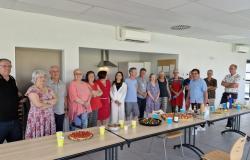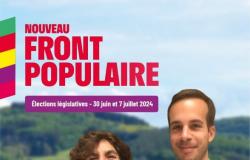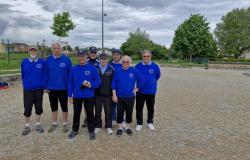
For the past week, the Pas-de-Calais Family Planning Department has been distributing a brochure to schools in the department, to encourage them to provide sex education sessions to their students. Courses that have been compulsory since 2001, but which are still missing from classrooms.
You certainly remember those sex education classes, given in middle school in 4th or 3rd grade to fit in with the program on reproduction and human anatomy, which did not allow you to learn much except on contraception. Or rather the condom.
Even today, many educational establishments provide incomplete courses on sexuality, or even do not take the time to provide them at all. Gaps that Pas-de-Calais Family Planning points out, recalling that a law passed in 2001 requires schools, middle and high schools to provide at least three sessions per year and per homogeneous age group.
“We carried out surveys among young people and most explained that they had never had lessons on this.“, notes Sabrina Sénécal, marriage and family counselor at Planning 62. “Or just one, with the SVT courses. But a regular class does not allow for free speech like in real sessions.“
Even if some teachers follow FILEAS training (multi-category training in sexuality education), the advisor emphasizes that their interventions must be complementary to real sex education sessions to “be able to talk about all subjects and deconstruct this system“.
In order to warn of the dangers represented by this lack of sex education, the association has created a brochure aimed at supporting educational establishments, to enable them to apply this legal obligation… And above all to take into account the sexual and mental health of their students.
Because sex education classes don’t just talk about the pill or pregnancy. The themes are supposed to be broader, more inclusive and above all answer the questions of young people by giving them a voice. Sabrina says: “We only talk about the topics they bring up and, clearly, they have lots of questions. Young people are quite demanding regarding these courses and ask a lot of questions.“
We only talk about the topics they bring up and, clearly, they have lots of questions. Young people are quite demanding regarding these courses and ask a lot of questions.
Sabrina Sénécal, marriage and family counselor at Family Planning 62
Prevention of sexist and sexual violence (SGBV), discovery of one’s body, the body of others, talking about consent, equality, sexual orientation, gender issues… A whole range of subjects can be approached to deconstruct certain myths and lead students “towards fulfilled sexuality“.
Obviously, these courses arouse reluctance on the part of certain parents, administrations or teachers. Sabrina Sénécal explains that, before middle school in particular, people can be resistant to sex education classes, for fear “ofbring the wolf into the fold“.”We explain to these people that these questions already exist, that we are not going to encourage them and bring more. We adapt to our audience.“
When it comes to children rather than adolescents, Family Planning will work more on emotions and the relationship with the body. “We are obviously not going to talk to children in CE1 about pornography. All we want is that as children grow up they can make respectful choices towards themselves and others, without constraint and without violence.“
We are obviously not going to talk to children in CE1 about pornography. All we want is for children to be able to make respectful choices towards themselves and others as they grow up.
For two hours, the 5 employees of Planning 62 can therefore go to a school to carry out an activity. In 2023, the association met 1,542 people, including 1,187 adolescents (12-17 years old) and 24 children (5-11 years old). Work that is prepared in advance, without there being a classic session, written in advance.
The advisors first speak with the school structure to find a long enough time slot, which will allow the students to engage. “Below 2 hours, it’s complicated, it takes time for young people to open up“, notes Sabrina. On the day of the intervention, the facilitators set a framework for the discussion, reminding us that this course is confidential but requires mutual respect. “Then you never know what the animation will be made of.“
Speech can be fluid or difficult, the group can tackle several subjects as one, ask questions, discuss among themselves… But always, the intervention is intended to be interactive, in the form of brainstorming or using tools , games, such as cards or pictures. “It’s a course without being one“, mentions the advisor with a laugh. “You simply don’t come with a PowerPoint to talk for two hours. Otherwise we don’t reach young people. You have to listen to them to understand their problems, and guide them as best as possible.“





